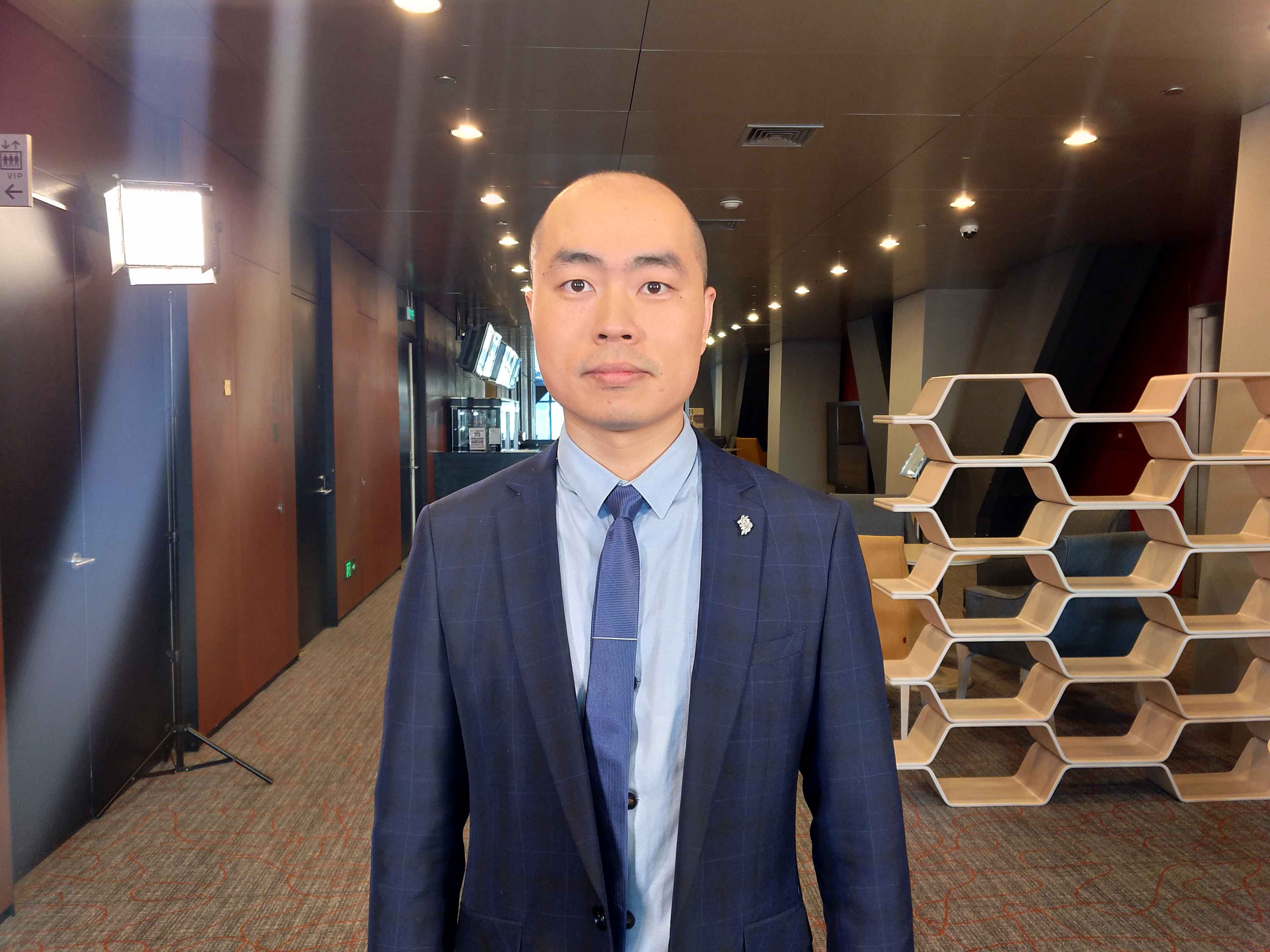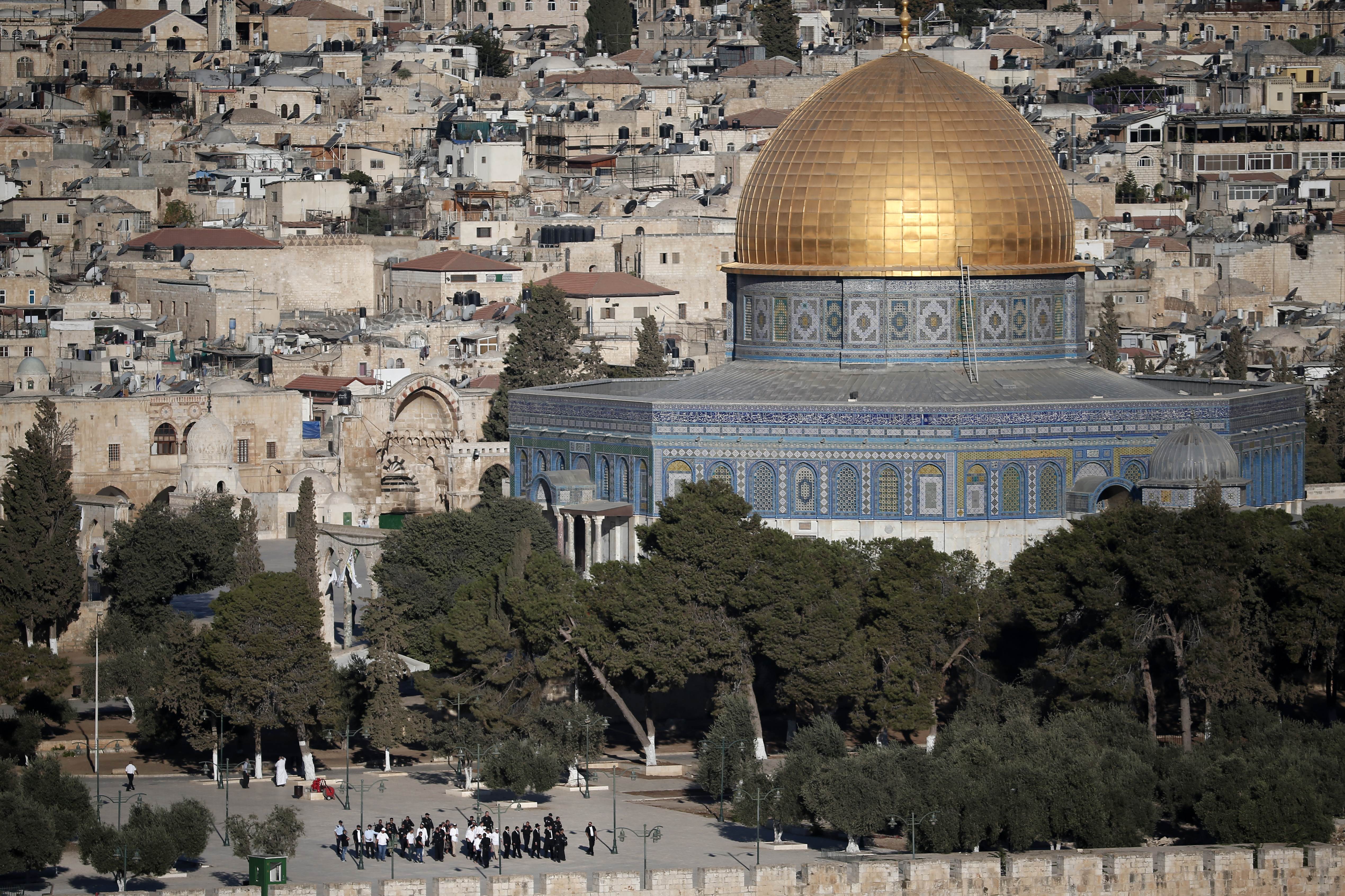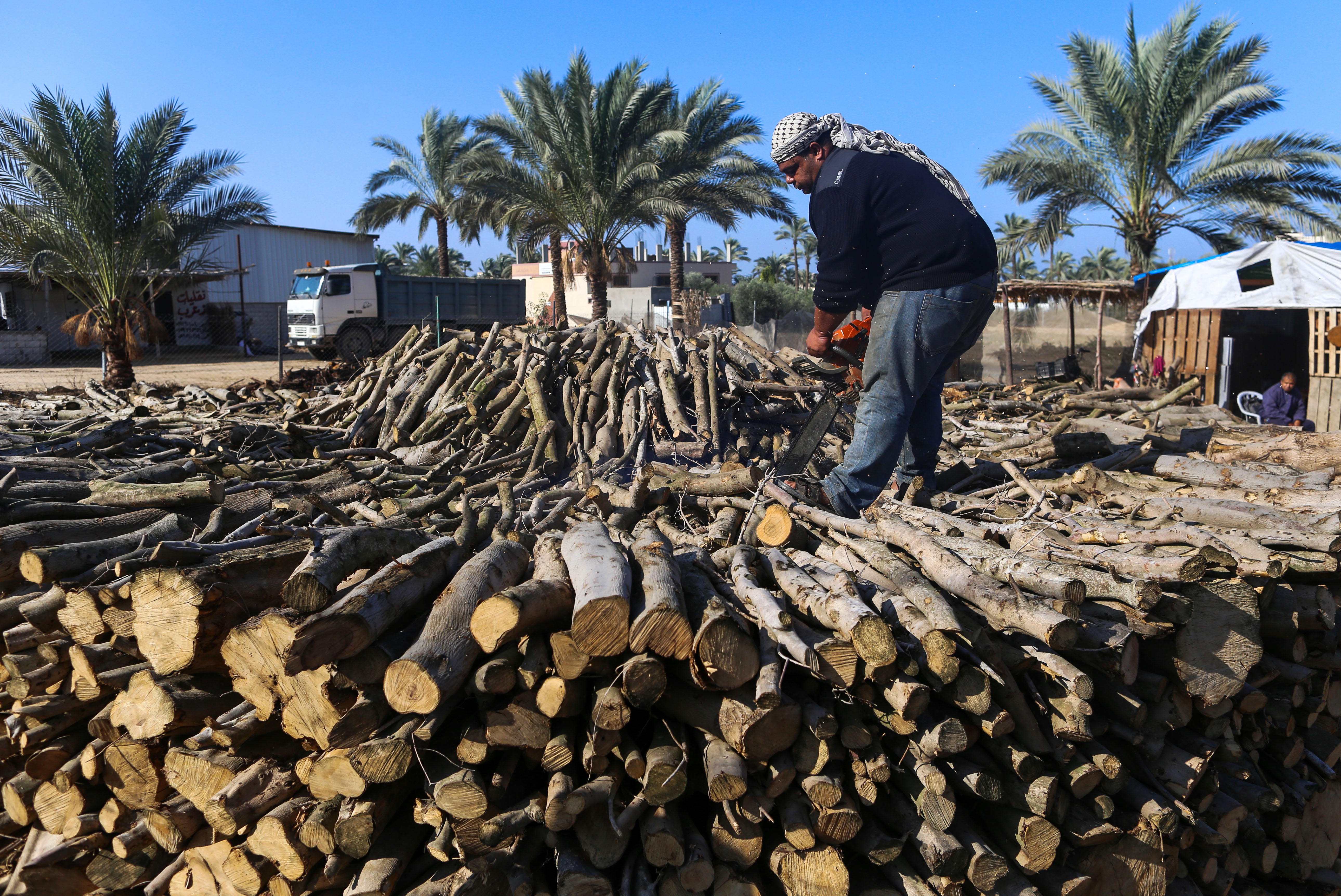By Wang Jin
Palestinian President Mahmoud Abbas’s visit to China marks a historical moment in the bilateral relationship between China and Palestine. This visit coincides with the 35th anniversary of the establishment of diplomatic relations between the two countries, and marks President Abbas's 5th visit to China.
China was one of the earliest countries to support the just cause of the Palestinian people and to establish diplomatic relations with the country. In recent years, China and the Palestinian people have supported each other on their respective core interests, and their bilateral relationship has entered a new historical period.

Wang Jin is a research fellow with the Center for China and Globalization (CCG). He is also an associate professor and the assistant director of the Institute of Middle East Studies in Northwest University of China. (Photo provided to GDToday)
The Palestinian question has encountered new difficulties in the past years. On the one hand, the conflict between Palestine and Israel has escalated, with an increase in frequency, intensity, and scope. Especially since 2022, large-scale violent conflicts have erupted between the Palestinian people and Israeli settlers in the West Bank of the Jordan River, causing many civilian casualties on both sides.
The Israeli military and police have stepped up their search for Palestinian “extremists” in the West Bank, especially in Jenin and Nablus, and the Palestinian people’s resistance to Israel has continued to escalate, ultimately leading to a large-scale conflict between Israeli and Palestinian armed groups in the Gaza Strip in May 2023.
Although Israeli and Palestinian armed groups achieved a ceasefire under Egypt’s mediation, sporadic conflicts continue, and a comprehensive conflict could break out at any time, which could easily escalate into full-scale confrontation between Israelis and Palestinians.
On the other hand, the peace talks between Palestine and Israel have stalled, and new channels of dialogue urgently need opening up.
Since the 2014 US-brokered peace talks between Palestine and Israel, the US has not held any peace talks between the two parties. In 2020, the US Donald Trump administration unilaterally launched the Peace to Prosperity plan, which seriously damaged the feelings of the Palestinian people. As a result, the Palestinian people's trust to the US has plummeted, and the security and political dialogue mechanism between Palestine and Israel is now stagnant.
With an increasing risk of the conflict between Palestine and Israel, the international community urgently needs to make efforts to help open up new channels of dialogue and establish communication mechanisms.

The Al-Aqsa Mosque compound in the Old City of Jerusalem. (Photo/Xinhua)
Affected by Israel's blockade and internal factional competition, Palestine’s economic development environment is harsh and needs more help and support from the international community.
Reports show that the unemployment rate in the West Bank of the Jordan River in Palestine is as high as 26 percent, 36 percent of Palestinians live below the poverty line, and the food shortage rate is 23 percent; the unemployment rate in the Gaza Strip is over 50 percent, and the food shortage rate is as high as 53 percent.
The amount of donations from the international community to Palestine has also declined significantly, from 2 billion USD in 2008 to 317 million USD in 2021.

A resident in the Gaza Strip prepares firewood for winter in November 2021, due to energy shortage in the region. (Photo/Xinhua)
The Palestinian question is the core of the Middle East issue, which concerns regional peace and stability as well as international fairness and justice. In recent years, China’s role in the Middle East has been widely praised by regional countries, and Middle Eastern countries are full of expectations for China’s role in the Palestinian question.
Firstly, achieving a lasting and just peace between Palestine and Israel is an important goal of China’s Middle East policy. China has always firmly supported the just cause of the Palestinian people to restore their legitimate national rights.
Chinese President Xi Jinping has congratulated the International Day of Solidarity with the Palestinian People for ten consecutive years, and has put forward Chinese proposals and views on promoting the resolution of the Palestinian question many times, emphasizing a political settlement based on the two-state solution and strengthening international efforts to promote peace.
In particular, when President Xi met with President Abbas on June 14, he put forward a three-point proposal for the settlement of the Palestinian question. As a permanent member of the United Nations Security Council, China is willing to work with the international community to promote a comprehensive, lasting, and just solution to the Palestinian question as soon as possible.
Secondly, China's role as a responsible major country and its idea of treating others equally have won widespread praise from Middle Eastern countries, including Palestine.
Unlike some countries' strategies of dividing camps and instigating independence in the Middle East, China respects the status of regional countries as the masters of their own affairs, opposes geopolitical competition in the region, and does not seek to fill the so-called “vacuum” or create exclusive allies.
China has always believed that the future of the Middle East should be in the hands of regional countries. It has supported the independent and autonomous exploration of development paths by the people of the Middle East, supported regional countries in resolving their differences through dialogue and consultation, and jointly promoted long-term stability and peace within the region.
China advocates a new security concept of common, comprehensive, cooperative, and sustainable development, and has played a constructive role in the Palestinian question and other major issues in the Middle East.
China’s positive and fair international image is widely accepted by Middle Eastern countries, and the role of China as a regional peace messenger and development partner is also widely expected by regional countries.
Finally, promoting peace between Palestine and Israel is an important foundation for deepening the reconciliation trend in the Middle East. In March of 2023, Saudi Arabia and Iran announced the resumption of diplomatic relations in Beijing, accelerating the reconciliation trend between Middle Eastern countries.
With the easing of relations between major countries in the region, other thorny issues in the Middle East have also ushered in a historic opportunity for resolution.
As the most sensitive and difficult problem in the Middle East, the Palestinian question not only involves many countries in the region, but also deeply affects the political direction of regional countries.
To continue promoting the reconciliation trend in the Middle East, establish a more stable, peaceful, and prosperous regional order, the international community and regional countries need to work together to patiently and meticulously assist in an early, just, and lasting resolution of the Palestinian question.
The settlement of the Palestinian question needs to be based on the premise of adhering to the two-state solution and introducing new security and development concepts, with the joint efforts of the international community. As an old friend of Palestine, China is willing to contribute to the early establishment of an independent Palestinian state.
The article reflects the author's opinions and not necessarily the views of GDToday.
(If you want to contribute and have specific expertise, please contact us at newsguangdong@sina.com.)

















